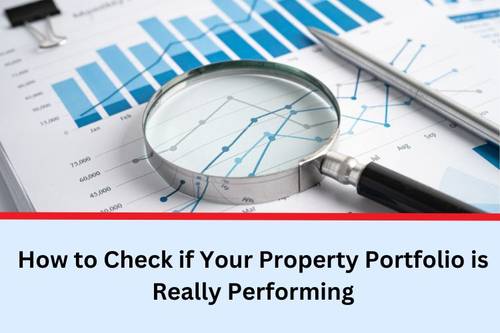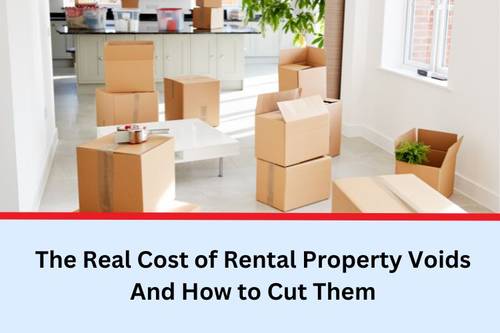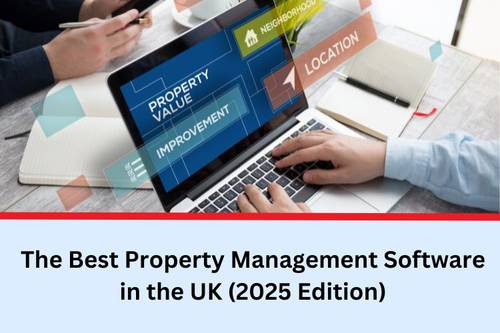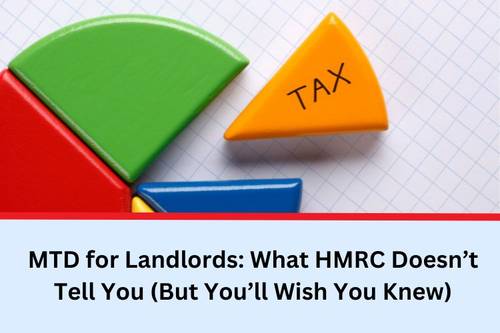There’s no shortage of landlord debates out there, should you let furnished or not? Are pets worth the risk? But the “agent vs self-managing” question is in a league of its own. Because it cuts to the heart of how you run your property business day to day. And let’s face it, whether you have one property or twenty, you’re running a business.
With fees rising, compliance tightening, and expectations shifting, 2025 is the year many landlords are asking: “Should I just manage it myself?” Or just as often: “Should I finally hand it over to someone else?”
Let’s explore this decision. Because it’s not just about fees, it’s about time, energy, peace of mind… and your bottom line.
The Real Cost of Letting Agents in 2025
On paper, letting agents look simple: they take a cut, and in exchange, they handle the work.
But the devil is in the details. And the real cost of an agent can be higher than you’d expect.
For a standard full management fee in 2025 you’re probably looking at a fee of 12–15% of the monthly rent plus VAT. But, aside from the monthly fee, these charges are often added on:
- £75–£200 for tenancy renewals
- Admin fees for arranging repairs
- Additional markups on contractor invoices if using letting agent approved contractors
- Fees for deposit registration
It adds up quickly. Especially if you’re operating in a lower-yield area where every percentage point matters.
That said, there are good agents out there. And if handing your properties to a letting agent means that you’re completely hands-off, the price may be worth paying. But even then, it’s rarely as “passive” as people think. You’ll still be answering questions, reviewing quotes, and double-checking compliance. So if you're paying for full management and you’re still involved... well, that’s worth reviewing.
What Does Self-Managing Actually Involve?
A lot of landlords shy away from self-management because they imagine it means becoming a 24/7 call centre.
In reality, it’s more like this:
You spend a bit of time up front, getting things set up, understanding your legal responsibilities, choosing the right systems. Then things mostly tick along.
Yes, sometimes the boiler goes. Or a tenant gives notice and you’re back on the end of tenancy clean and creating Rightmove listings and trying to capture product photos at golden hour. But for the most part, a well-managed property with a decent tenant can be really low drama.
You’ll need to:
- List the property (and maybe take some decent photos)
- Handle viewings and applications
- Use a solid tenancy agreement (not one from 2007 you found in your inbox)
- Register the deposit
- Collect rent, follow up on any late payments
- Arrange annual checks (like gas safety certs)
- Deal with the occasional repair
That might sound like a lot, but with tools like PaTMa, most of this can be handled in minutes. With a good property management tool you can set reminders. Track income and expenses. Store your documents. And importantly: you stay in control. No more chasing your agent for updates. No more wondering if the tenant ever got that repair booked in.
And if you find that you’re good at some of these things and not others, you can always out-source the parts of your process that you find hard to keep on top of. Use an agent for a let only arrangement to help you find a tenant. Use a debt management company to chase up late payments. It can vastly reduce your costs to oursource on a case by case basis rather than outsourcing the entire process.
The Hidden Cost of Self-Management: Your Time
This is the bit landlords sometimes gloss over.
Yes, you save money. But your time has value too. If you’re self-managing, you’re also your own:
- Lettings negotiator
- Property manager
- Bookkeeper
- Legal compliance officer
Let’s say you spend 4–6 hours managing each property per month, on average. At minimum wage, that’s £45–£70 worth of time. But if you’re earning more than minimum wage working alongside your portfolio, that hourly rate is going to be a lot higher. Then any time spent managing your portfolio is time not spent earning your hourly rate.
So the question is: Is it worth it?
Well, that depends on how efficiently you’re managing.
If you’re reinventing the wheel every time a tenancy ends, it’ll feel like a slog. But if you’ve got good templates, a few saved contractor numbers, and a system that reminds you what’s due when… suddenly, it’s manageable. Even enjoyable, for some landlords.
But It’s Not Just About Time or Money
Here’s the stuff that doesn’t show up in a spreadsheet:
- Do you enjoy being hands-on? Some landlords genuinely love having a direct relationship with their tenants. Others… not so much.
- How close do you live to the property? If it’s a 10-minute drive, popping over to check a leak isn’t a big deal. If it’s two hours away? That changes things.
- Are you confident with legal compliance? Things like deposit protection, Section 21 notice periods, or Right to Rent checks, they’re not difficult, but they are important.
- Are you willing to learn? You don’t need to know everything on day one. But you do need to stay curious and stay informed, or at least use a tool that helps you do that.
When Should You Self-Manage?
Here’s the short answer:
You should consider self-management if:
- You have one or a few properties
- You’re relatively local
- You’re organised (or want to be!)
- You’d like to increase your yield without cutting corners
You don’t have to go all in at once. You can start by taking over a renewal. Or self-manage a single property to begin with. See how it feels. Try a property management system like PaTMa to see how it feels to start self managing. PaTMa makes it easy to start, no confusing setup, no contracts, no pressure.
Start using PaTMa Property Manager for free
You’ll get all the tools to self-manage with confidence, automated reminders, expense tracking, yield calculators, document storage, and more.
Bonus: What’s Your Management Really Costing?
Here’s a great mental exercise for working out what letting agent management really costs.
- Add up every letting agent cost from the past 12 months, including extras.
- Add a rough estimate of your own time spent liaising with them.
- Ask yourself: was it worth it?
Sometimes it absolutely is. Especially for complex portfolios or overseas landlords.
But often, the numbers tell a different story.
Final Thought: It Doesn’t Have to Be All or Nothing
Some landlords self-manage everything. Some hand it all off. But many find a balance, using agents for tenant-find, then managing the tenancy themselves. Or keeping full control, but outsourcing compliance.
The point is: you have options.
And in 2025, with tools designed for DIY landlords, self-management is no longer the mountain it once was. It’s just a different path. And it might be the one that finally lets you run your portfolio like a business, without the middleman.
Want to give it a try?
Create your free PaTMa Property Manager account today and see how simple self-management can be.




